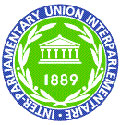|
|
 |
 |
|
Resolutions Adopted by the 180th Session of the Inter-Parliamentary Union’s General Council on Imprisoned Current and Former Members of the Palestinian Legislative Council:
Marwan Barghouti
Hussam Khader
Ahmad Sa’adat
|
|
|
|
|
The Right to Family Life |
|
|
|
Adalah to SCt: Overturn New Citizenship Law Banning Family Unification that Prevents Palestinian Citizens of Israel from Being Connected to Palestinian People and Arab Nation |
|
|
|
Economic Rights |
|
|
|
SCt. Grants State an Additional Year to Implement its Decision from February 2006 to Cancel Discriminatory Classification of “National Priority Areas” |
|
|
|
Forty Years of the Occupation |
|
|
 Israel and the Culture of Impunity Israel and the Culture of Impunity
Hala Khoury-Bisharat, Advocate, Adjunct Lecturer in International Criminal Law at Israeli Law Schools and Board Member of Adalah |
 |
 Towards Defetishizing 1967: Preliminary Thoughts on the Subject and the Concrete Towards Defetishizing 1967: Preliminary Thoughts on the Subject and the Concrete
Nimer Sultany, SJD candidate, Harvard Law School |
|
|
|
Criminal Justice |
|
|
|
Supreme Court Rejects Adalah’s Petition Demanding Criminal Indictments of Soldiers Responsible for Fatal Shooting of Mr. Meteb al-Nebari |
|
|
|
The Right to Education |
|
|
|
Adalah to Attorney General: Closure of Akbara School for Arab Children in Safad Violates Compulsory Education Law |
|
|
|
The Occupied Palestinian Territory |
|
|
|
AG's Office Attacks Adalah and ACRI for Seeking to Overturn Revocation of PLC Members' Jerusalem Residency, Claiming their Arguments are Immoral |
|
|
|
From the Archives |
|
|
|
Petitions filed by Adalah and LAW to the Supreme Court in April-May 2002. Submitted by Adalah, LAW and PCHR to former UN Secretary-General Kofi Annan on 29 May 2002 |
|
|
|
Adalah's Annual Report 2006 |
|
|
 The Full Report The Full Report
The Executive Summary |
|
|
|
|
|
 Adalah’s Newsletter is a monthly publication issued in Arabic, Hebrew and English. It highlights Adalah’s main activities, provides analysis of human rights issues, and links to new reports. Suggestions, articles and commentaries from our readers are welcome. View previous volumes Adalah’s Newsletter is a monthly publication issued in Arabic, Hebrew and English. It highlights Adalah’s main activities, provides analysis of human rights issues, and links to new reports. Suggestions, articles and commentaries from our readers are welcome. View previous volumes |
|
|
|
|
|
|
Opening Remarks |
|
Civil Equality & the Jewish State |
|
In 1998, Adalah petitioned the Israeli Supreme Court (SCt.) on behalf of the High Follow-up Committee for Arab Citizens in Israel and the Follow-up Committee on Arab Education seeking the cancellation of a governmental decision that classified towns and villages in Israel as “National Priority Areas” (NPAs). In February 2006, after eight years of hearings, an expanded seven-justice panel of the court ruled that the classification of NPAs in the field of education blatantly discriminates against Arab towns and villages and must therefore be cancelled, and specific objective criteria for the allocation of these benefits set forth. Over 550 towns and villages were classified as NPAs, including only four small Arab villages, and enjoy extremely lucrative socio-economic benefits. The SCt. gave the state one year to implement its ruling. However, the Ministry of Education (MOE) recently requested a four or five year extension, claiming that implementing the decision in 2007 would damage Jewish towns and the teachers working in them, who have been receiving benefits over a long period. The SCt. expressed reservations about the MOE’s non-implementation of the decision, but immediately complied with its request, awarding an additional year in order to prevent harm to Jewish towns on the NPAs list. In so doing, the court has not only diminished its institutional standing, but has also disregarded the harm caused to the legitimate interests of Arab towns, villages and teachers, ruled illegal by the court only a year ago. Many Israeli academics argue that Israel as a “Jewish and democratic” state grants benefits to Jewish citizens only at the level of national rights (e.g. the Law of Return), while observing full equality in its dealings with all citizens of the state regarding civil equality. The issue of NPAs testifies once again, however, that the principle of the rule of law in the Jewish state is based on national belonging, even at the civil level. This case shows that ethnic supremacy in Israel exists, cannot be divided based on civil and national equality, and has constitutional and institutional backing. |
|
|
|
Upcoming Conference |
|
|
|
|
|
New Report |
|
|
|
|
|